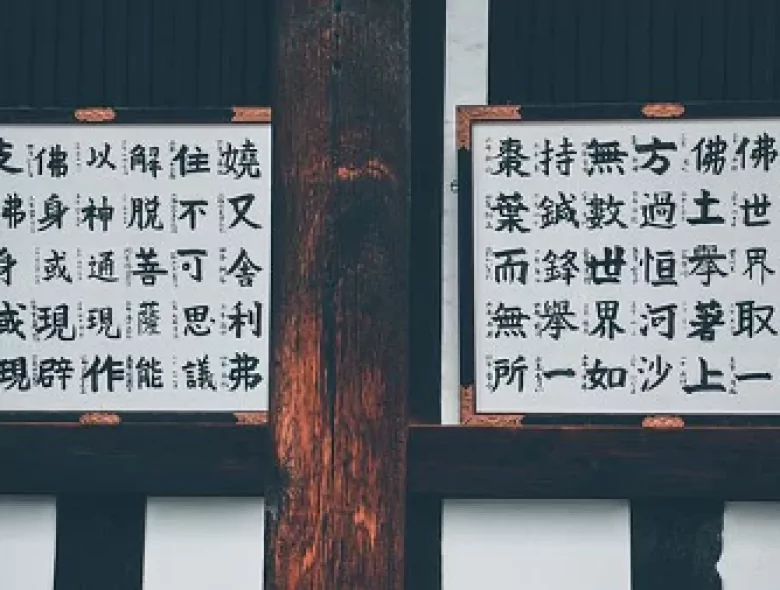Living in a foreign country is equal parts exciting and scary. Learning and experiencing a new culture can be rewarding but it helps to know the language. Japanese is one of the hardest languages to learn in the world and it is only truly applicable in the country of Japan. If you move to Japan, there is plenty of English in the major cities that allow people to live there with very little Japanese language skills, but English becomes less common when you visit more rural areas. Even though English is taught in the schools, the average English level of Japan is among the lowest in Asia. It helps to learn some basic parts of the language and we will look at some basic words and phrases that will help you in situations you will encounter in Japan.

Hiragana/Katakana
The first thing that anyone who is moving to Japan should do is learn the basic Japanese alphabets of Hiragana and Katakana. Hiragana is Japan’s own alphabet that they created for themselves, unlike Kanji, which was taken from the Chinese alphabet. Unlike the English alphabet, Hiragana is made of syllables and not individual letters. Each character represents one syllable and there are two modifiers that can change the sound of the character: ten-ten and maru. Katakana is another alphabet that uses the same sounds as Hiragana but changes the characters to more angular ones. Katakana is used mainly for borrowed words from other languages. Any time they want to use another language’s word they will spell it using Katakana.
You will see Hiragana and Katakana used everywhere in Japan in conjunction with Kanji. You won’t be able to read everything, or even understand it, but it will help you understand some basic things which will help when navigating certain areas. You will have an easier time trying to find your way if you learn the basic characters before going to Japan.

Greetings
Learning proper greeting etiquette is essential for interacting with the people of Japan. First impressions are extremely important, and it will dictate how people will treat you during your stay. There are steps to take during greetings and it all depends on what kind of meeting you find yourself in.
In casual greetings, it is often acceptable to introduce yourself, with a light bow and a handshake if the other person is inclined to do so. A basic greeting will be, “Watashi wa (your name) desu. Yoroshiku onegaishimasu.’ It simply means my name is, and it is nice to meet you. This is a standard greeting that works in any casual first meeting. You can add some other information such as where you are from and what kind of food or hobbies you enjoy. You say the phrase, “Suki na tabemono wa (food) des.” Or ” Suki na shumi wa (activity) des.” Simple facts like that are common icebreakers and most people like to learn little things like that about new people they meet. Try to keep from being too familiar with new people as they tend to take time before warming up to you.
Formal greetings are reserved for meeting your new bosses and most of the time they will forgive you for not knowing the formal way of greeting them. Show them as much respect as you can and try to keep your hands to yourself. You will most likely receive a business card or meishi. You should treat this card as an extension of that person and not instantly put it in your pocket. Wait until they aren’t looking to put it away.
These are a few things to keep in mind when greeting for the first time, but you will be forgiven for not following the rules completely. Try to be calm and take each meeting in stride.

Asking for Things
Asking for something is very simple and will help you when trying to order food or trying to go to places. If you are trying to ask for an item you can say the item and then onegaishimasu, which means “please”, or kudasai, which is “please give me.” For example, if you go to a hamburger place you can say, “Hamburger kudasai.” It is something that everyone in Japan will understand and will be able to assist you with.
If you want to ask where something is, you start with ” Doko ni (place/thing) arimasu ka?” You and can add “toilet”, “station”, or any other thing you want to find. It can be used in any situation in which you find yourself in need of directions. If you can’t think of the Japanese word, you can try using English and gestures to get your point across.

Helpful Words and Phrases
Here are some helpful words for common things:
Toire- toilet Shinbun- newspaper
Pan- bread Saifu- wallet
Eki- station Okane- money
Densha- train Tabemono- food
Denwa- phone Nomimono- drinks
Ketai denwa- cell phone Osake- alcohol

Here are some phrases that can help you get around japan:
Sumimasen- Excuse me. Gomenasai- I’m sorry.
Dozo- Please do/go ahead. watashi wa (name) des- My name is___.
Onaka suita- I’m hungry. Tasukete kudasai- Please help me>
(place) ni ikitai- I want to go to__ . Doko ni (place)- Where is ______?
Ima nanji des ka?- What time is it? Yoroshiku onegaishimas- Nice to meet you.
There are phrasebooks you can purchase at bookstores and use for simple directions and other small things.
It is only a small portion of information, but these words and phrases can help with some simple interactions in Japan. Try to learn as much as you can before going to Japan and your transition will be smoother.


